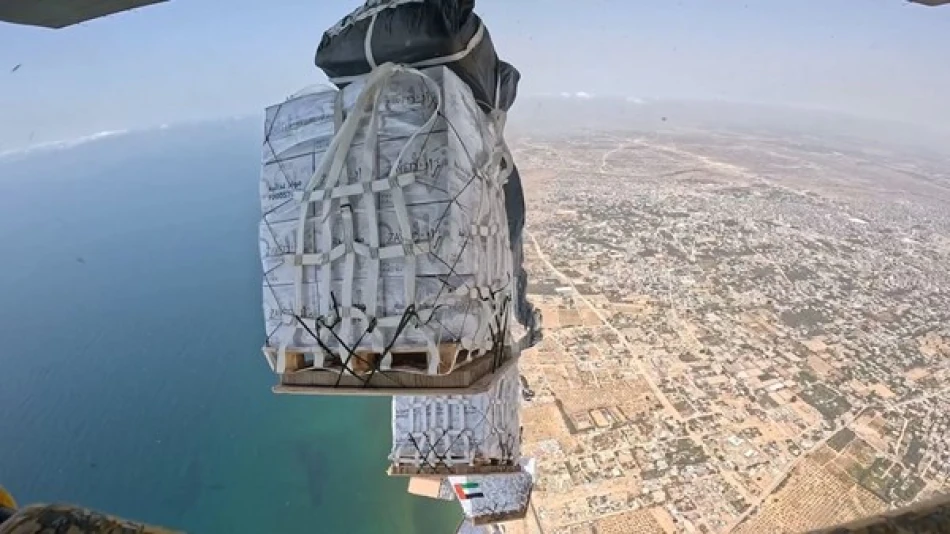
UAE Launches 76th Aerial Humanitarian Airlift to Gaza, Delivering Critical Aid
UAE Delivers 76th Humanitarian Airdrop to Gaza, Surpassing 4,000 Tons in Relief Aid
The United Arab Emirates has completed its 76th airdrop of humanitarian supplies to Gaza as part of its "Birds of Goodness" operation, bringing total aerial deliveries to over 4,020 tons of essential aid. The sustained relief effort, conducted in partnership with Jordan and five other nations, underscores the UAE's strategic approach to maintaining regional influence through humanitarian diplomacy amid ongoing Middle East tensions.
Multinational Coalition Expands UAE's Diplomatic Reach
The latest airdrop, executed under the broader "Noble Knight 3" operation, involved coordination with Jordan, Germany, France, the Netherlands, Singapore, and Indonesia. This diverse coalition reflects the UAE's growing ability to mobilize international partners for humanitarian initiatives, positioning Abu Dhabi as a key mediator in regional crises.
The operation delivered basic food supplies and essential materials funded by Emirati charitable organizations, targeting Gaza's population amid deteriorating humanitarian conditions. The UAE's methodical approach—numbering each airdrop and maintaining detailed tonnage records—demonstrates institutional commitment beyond typical emergency responses.
Strategic Humanitarian Diplomacy in Practice
The UAE's sustained Gaza relief effort represents a calculated soft-power strategy that has become central to its foreign policy toolkit. Unlike one-off emergency aid packages, the numbered sequence of 76 airdrops signals long-term engagement designed to build diplomatic capital across the Arab world and internationally.
Regional Leadership Through Crisis Response
This approach mirrors the UAE's response to other regional crises, from Lebanon's economic collapse to Syrian refugee assistance. By consistently positioning itself as the region's primary humanitarian coordinator, the Emirates has successfully differentiated its foreign policy from traditional Gulf approaches focused primarily on energy diplomacy.
The inclusion of European and Asian partners in the Gaza operation also reflects the UAE's broader strategy of building bridges between Middle Eastern concerns and global stakeholders, potentially creating leverage for future diplomatic initiatives.
Implications for Regional Stability and Investment Climate
For international investors and regional analysts, the UAE's humanitarian leadership offers insights into the country's long-term stability and diplomatic positioning. The sustained Gaza operation demonstrates institutional capacity for complex international coordination while maintaining relationships across political divides.
The partnership with Jordan proves particularly significant, as it provides the UAE with operational access to Palestinian territories while respecting traditional Jordanian custodial roles. This careful balance suggests sophisticated diplomatic planning that could translate into broader regional influence as post-conflict reconstruction eventually begins.
The 4,020-ton milestone positions the UAE among the largest humanitarian contributors to Gaza, potentially creating expectations for continued leadership in future Middle East crises while establishing precedents for multilateral cooperation that could benefit the broader region's economic and political stability.
Most Viewed News

 Layla Al Mansoori
Layla Al Mansoori






